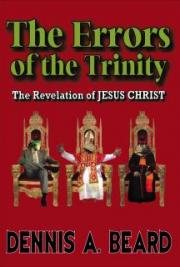The new marketing approach is to build a brand not a product—to sell a lifestyle or a personality, to appeal to emotions. But this requires a far greater understanding of human psychology. It is a much harder task than describing the virtues of a product. The attempt by brands to adopt a social component—to embrace a lifestyle—is giving consumers a lever to influence the behaviour of the companies that stand behind them. The No Logo proponents are correct that brands are a conduit through which influence flows between companies and consumers. But far more often, it is consumers that dictate to companies and ultimately decide their fate, rather than the other way round (Ibid.).
Ahmad concluded the article with the following statement, “The founders of some
of the world's oldest [brands]—Hershey, Disney, Cadbury and Boots, for example—
devoted their lives and company profits to social improvements, to building spacious
towns, better schools and bigger hospitals. The difference in the future will be that it will
be consumers, not philanthropists, who will dictate the social agenda” (Ibid.).
In the age of globalization, countervailing power to multinational corporations is
being provided not only by consumers and governments, but by civil society organizations (CSOs), whose actions were described by Oliviero and Simmons (2002, p.
77), as being responsible for the increased expressions of corporate social responsibility
in recent corporate publications. “Global corporations did not wake up one morning and
decide to become socially responsible citizens, however. They were instead awakened,
sometimes roughly, by the concerted efforts of civil society organisations (CSOs), which
can today boast a global reach equal to that of their corporate counterparts.”
Despite the spreading faith in corporate good citizenship, investment analysts are notably unmoved. Corporate leaders have repeatedly complained that analysts, whose interpretations of a company’s effectiveness influence stock prices, focus on quarterly earnings. The benefits of investments that are associated with corporate citizenship are not usually evident in the short term, and analysts are often hard-pressed to pay attention to much else; and reputational risk, a significant consideration in corporate board rooms, is not yet on the list of issues that concern analysts (Ibid., pp. 79- 80).
Civil society is pushing the concept of partnership yet further, attempting to establish social reporting instruments comparable to the financial reporting instruments now standard throughout the world. Some CSOs are attempting to establish voluntary, industry-specific reporting mechanisms that measure the social and environmental performance of companies. Other CSOs labour to establish a process of social audits and the certification of auditors. A few CSOs propose an instrument that would transcend national boundaries and maintain a professional uniformity from country to country and business sector to business sector. Coalition for Environmentally Responsible Societies (CERES) is the author of one standard-setting initiative. CERES, which came to prominence in the wake of the 1989 Exxon Valdez disaster in Alaska, is a coalition of environmentalists, corporate executives, and concerned citizens who have promoted an agenda for environmental sustainability. Its Global Reporting Initiative (GRI) emerged in response to the increasing number of examples of environmental and human rights abuses committed by corporations, incidents which have resulted in no penalty or even challenge by national or international agencies (Ibid., p. 90).
Monitoring may take several forms, but at the core it is the delivery mechanism for the transparency so essential to any society that aspires to be open and free. The process usually focuses on two broad areas: working conditions, including freedom of association, and the environment….While civil society is filling an important gap through its role in monitoring and standard setting, in a perfect world this work might be led by official international agencies or governments…One need only to look at the Enron scandal in the United States to see that even institutionalised methods of accountability (e.g. compliance with domestic regulations and oversight by a board of directors) and the presence of an active and unfettered press can fail to prevent massive fraud and deception. Civil society faces a daunting task, not the least part of which is establishing what should be monitored and what constitutes corporate responsibility (Ibid., p. 91).
Ultimately what may win over the corporate world is the profit motive. Profits are affected by both negative and positive publicity, and in the case of the former it seems that, even if the publicity does not have a great impact on sales, it can still alter the corporate mindset (Ibid., p. 99).
According to the study, however, civil society is limited in what it can do. For
example, in order for negative publicity to have an impact target corporations must be
“large and visible companies with brand names” but not so large that one division of the
organization can be socially responsible and mask the questionable activities of another
division…Finally, “there are some…campaigns the public refuses to embrace.
Americans continue to buy highly inefficient sports utility vehicles, manufacturers are
unrepentant about making them, and elected representatives resist imposing higher
gasoline taxes and increasing automobile fuel efficiency standards” (Ibid., pp. 100-101).
The study concluded, “In the end, of course, social values and norms will have to
change if the world is to become a safer, healthier place, and it is here that CSOs will
always play one of their most important roles. Multinational corporations will not
institute change, nor will governments legislate it, if the public does not care. By
changing the way that people think about the world and their place in it, civil society
organisations are creating the conditions under which human rights, environmental
integrity, and social progress may be fully realised” (Ibid., p. 105).
Americans will eventually realize that there is a distinction between “free
enterprise” and “democratic freedom.” The material comforts we take for granted today came about largely as a result of the fusion of the Protestant work ethic with the corporate
form of organization. But this work ethic led to what Innes has called the Protestant
dilemma, i.e. “industriousness and frugality brought wealth, which in turn brought
temptation and worldliness” (Beatty, 2001, p. 14).
Much has been gained through the industrial revolution and the coming of the
scientific age. If we assume that Maslow’s hierarchy is relevant, then the increase in
material well being of more and more people may enable them to rise above the struggle
for the basic necessities of life to become “self actualizing.” But what has been lost in
the balance?
According to Korten, early American culture was “the mass marketer’s worst
nightmare. Frugality and thrift were central to the famed ‘Puritan ethic’ that the early
Puritan settlers brought with them to America. The Puritans believed in hard work,
participation in community, temperate living, and devotion to a spiritual life. Their basic
rule of living was that one should not desire more material things than could be used
effectively. They taught their children, ‘Use it up, wear it out, make do, or do without.’
The Quakers also had a strong influence on early America and, although more tolerant
and egalitarian, shared with the Puritans the values of hard work and frugality as
important to one’s spiritual development. Ralph Waldo Emerson and Henry David
Thoreau, both important early American writers, viewed simplicity as a path to
experiencing the divine” (2001, p. 152). Modern Western Civilization is sorely lacking a
consumer ethic, without which a consumer democracy will have little power.
Beatty (2001) suggested that the time has come for a world government. “The
countervailing power wielded against the corporation by the federal government and the labor union between the Civil War and World War II took place in the context of a
nationalizing economy. Regulation and the union wage became part of the cost of doing
business in America. But today’s multinational corporations don’t necessarily have to do
business in America. Given the mobility of capital and technology, they can in theory
and increasingly in practice escape American countervailing power. In relation to the
globalizing economy, perhaps, we are at 1900 in the nationalizing economy, with the
corporation-domesticating reforms of the TR/Wilson era and the New Deal still ahead of
us. Only what’s needed now is a global version of the New Deal—a task to occupy the
first half of the twenty-first century. The dimensions and duties of government were
transformed to match the power of the corporation. A new kind of national sovereignty
had to be fashioned. Will the global corporation, in the dialectic of countervailing power,
usher in the kind of global sovereignty its critics see in embryo in the World Trade
Organization?” (p. 407).
The corporation does serve a vital function. No other force could have produced
the vast number of products for satisfying society’s basic necessities. This enables
greater numbers of individuals to become more or less independent of the struggle for
mere existence and to be able to approach Maslow’s concept of self-actualization. The
downside has been the unnecessary proliferation of brands and luxury products that add
little to the satisfaction of
basic needs. Another downside is the exportation not only of
products, but of culture and lifestyle. To those who value diversity, there is a danger of
worldwide homogenization through the process.
American society has not yet evolved to the point where it is ready for pure
democracy. That time will not come until the majority of the people prove they have individualized to the point that they are no longer able to be led like herd animals. At
that time, consumers themselves will become a countervailing power, avoiding products
that are harmful or unnecessarily wasteful, and supporting products that are beneficial.
This ‘ethical consumption’ is the flip side of corporate ‘social responsibility.’
The exercise of property rights unfettered by the community and its notion of the
common good, has led to increasing degradation of the environment. In one resource
extraction industry, excessive clear-cutting of trees for lumber has created a blighted
countryside. Runoff from timber activities, including road building, has silted once
pristine streams and rivers, and threatened the habitat of threatened species of salmon and
trout. Many species, including the now famous spotted owl, depend on old-growth forest
as their primary habitat. CHAPTER FOUR
TREES AND WATER: THE PACIFIC LUMBER CASE
Cahn wrote that “Free-market environmentalists…argue that property rights
encourage responsible management” and that “Property owners recognize the need to
maintain the long-term value of property” (1995, p. 125). Pacific Lumber, however,
illustrates the exact opposite. After a leveraged buyout, the company had to increase
timber production above sustainable levels to be able to service its debt and continue to
pay dividends to its shareholders.
The Pacific Lumber Company (PL, Palco), once a model corporate citizen, now a
wholly-owned subsidiary of Maxxam Corporation, is one example of what is wrong with
corporate power and growth-oriented resource extraction. It is a model case study, an
example of the market’s failure to appropriately value dwindling resources.
In his book
The Last Stand, David Harris (1996) told the story of PL, describing
how the company was taken over by corporate raider Charles Hurwitz, and dramatizing
the environmentalists’ war against him. In 1985, with the help of junk-bond financier
Michael Milken and arbitrageur Ivan Boesky (who both later served time in prison),
Hurwitz (who himself escaped prosecution) was able to buy PL using a leveraged buyout.
As a result of PL’s huge new debt, Hurwitz ended up having to increase its cut of lumber
substantially. Describing the tender offer agreement, Harris wrote,
The document’s only direct mention of just what Charles Hurwitz had in mind for Pacific Lumber once it was his came in a paragraph on page eighteen, under the heading “Debt Service”: “The Purchaser expects to require funds substantially in excess of the amounts currently generated by the operations of the company in order to pay the principal of the bank loans and Notes [so] the Purchaser has considered…increasing the Company’s annual lumber production…to a level which…would equal two times or more the Company’s 1984 production [and] may consider selling some or all of the Company’s cutting and welding operations [and] taking…action…to cause surplus assets held by the Company’s defined benefit [pension] plan to revert to the Company” (pp. 55-56).
Before Hurwitz acquired it, PL was a model of sustainable forestry. It was owned
by the Murphy family for several generations before becoming a publicly traded
company. One of the Murphys, Albert Stanwood (Stan), who became president of the
company in 1931, laid the foundations for “the identity assumed by Pacific Lumber for
the next half-century” (Ibid., p. 17). One of the policies Stan Murphy put in place was
the “selective cut,” at a time when “clear-cutting—felling every one of the trees in any
stand during harvesting, leaving behind a bald patch of mountainside—was the industry’s
standard technique. …PL cut a maximum of 70 percent of the mature trees in a stand,
leaving the younger, most vigorous redwoods to hold the hillside and seed a new
generation of forest” (Ibid.). The other significant policy Stan Murphy instituted was
“sustained yield”: “…[PL’s] annual cut would always be limited and never exceed its
timberland’s new growth” (Ibid., p. 18). As a result of these policies, in 1985
“…PL…was timber rich…[and] having limited its cuts, [it] now owned almost 70
percent of the remaining ancient redwood forest that was still in private hands” (Ibid., p.
19).
Harris wrote, “Using the company’s own timber estimates, Salomon Brothers
calculated that Pacific Lumber was worth between $60.28 and $77.96 a share. In light of
calculated that Pacific Lumber was worth between $60.28 and $77.96 a share. In light of
74). Hurwitz was offering $840 million for a company worth between $1.3 and $1.7
billion.
When valuable resources are so undervalued, there is clearly a market failure.
The reason is that the market only values short-term profit, return on investment, not long-term assets. As a matter of public policy, assets which are important to the
American people should be protected—but the market fails to provide a mechanism for
doing so. Because of the market, Pacific Lumber went from being managed for
sustainability to being increasingly managed for liquidation. (See Table 1).
Seral Type Decade 0 % Decade 6 % Decade 12 % Forest Opening 12,616 6 16,012 7 21,732 10
Young Forest 38,502 18 66,199 31 58,575 27
Mid-successional 87,772 41 96,027 44 77,030 36
Late Seral 53,236 25 20,973 10 41,886 19
Old Growth 6,444 3 2,136 2 2,136 2
Hardwood 4,266 2 1,489 1 1,477 1
Prairie 3,832 2 3,832 2 3,832 2
Non-timber 5,038 3 5,038 3 5,038 3
Total 211,706 100 211,706 100 211,706 100
Table 1. Projected Forest Seral Type by [Selected] Decades. Old growth (already seriously depleted by 1998, the date of the draft document), late seral, and mid-successional forests will have all declined, while young forest and forest opening will have increased, over the 120-year life of the plan. Additionally, the plan describes buffer zones (also called WLPZs, or Watercourse and Lake Protection Zones) along Class I and Class II streams and lakes, but Forest Practice Rules require only “equipment exclusion and limitation zones” on Class III streams, which happen to make up 76% of the watercourses on PALCO lands, capable of “sediment transport” into Class I or II watercourses. Close examination of the plan reveals a corporation willing to meet legal minimum requirements, but nothing more. (Source: Headwaters Habitat Conservation Plan/Sustained Yield Plan. http://resources.ca.gov/headwaters/hcp/v1.pdf).
As a result, a number of environmental problems have developed. The first and
most obvious problem is the loss of old growth forest that provides habitat for several
threatened and endangered species. The spotted owl and marbled murrelet, to name just
two, make old growth forest their home.
The second problem, also obvious to those affected, was the loss of water quality
in local streams and rivers. As a result of logging on steep slopes and road-building
activities, the streams and rivers began to build up sediment. This not only impacted the
habitat of salmon and steelhead trout, but also property owners along the affected
waterways. Pacific Lumber is an example of corporate power gone awry. On February 24,
2003 the Humboldt County district attorney filed a civil fraud suit against PL under
California’s Unfair Competition Law (UCL).
People v. The Pacific Lumber Company
(2003) alleges that PL fraudulently withheld information that would have reduced the
amount of timber it could harvest under its Sustained Yield Plan (SYP). When PL was
unable to have the suit dismissed, Paul Gallegos, the district attorney—and an elected
official—found himself facing a recall election. James Tressler (2004) reported in the
Eureka Times-Standard that Palco and Maxxam had “poured nearly $250,000 into the
recall attempt.” (It was a year of recalls in California; Governor Gray Davis also faced a
recall challenge, which he lost in a special election held October 7, 2003).
Quoting, in a supplemental brief, language from the Second Amended Complaint
charging that Pacific Lumber had violated the Unfair Competition Law (UCL), the
district attorney’s office wrote:
Defendants' actions deprived the public, the director of CDF, and all other affected public agencies of an administrative process and of permits untainted by fraud. The review process was so tainted by fraud as to lack all legitimacy, and constituted a fraud and a sham. As a proximate result of the aforesaid conduct of defendants, (a) the public and the government have been deprived of the benefits of a fair administrative process, …(Supplemental Brief, 2004, p. 5).
In the same document, the D.A. emphasized the “corporate nature” of the
defendant, as shown in the following passages:
Defendant, a corporation, is charged with engaging in a fraudulent business practice with the government and public. If, therefore, this Court in this case were to disallow the district attorney from bringing this action under the UCL, it would be sending a catastrophically cynical, harmful invitation to every dishonest corporation dealing with government: no DA will get you--so lie as you please (Ibid.).
…if district attorneys were prevented from prosecuting UCL actions against corporations committing fraud in public dealings, such corporations would then be encouraged to commit fraud in their private dealings (Ibid., p. 8).
One of the casualties of PL’s abuse of corporate power is the democratic process.
Of course there are the usual problems of corporate influence through lobbying and
political contributions, but when a corporation, because of its access to greater resources
and political connections, attempts to circumvent the law by engineering a recall election,
the people need to wake up.
Just before Governor Gray Davis was recalled from office, he signed SB 810 into
law, much to the chagrin of lumber companies operating in Northern California. Up until
that time, lumber operators primarily had to concern themselves only with the California
Department of Forestry. Now, the California Water Board was going to get a chance to
get into the act. As reported in the Sacramento Bee,
Over the objections of the state’s timber industry, Gov. Gray Davis has signed legislation that gives regional water boards new powers over logging on private land, particular on the North Coast.
The measure, SB 810, probably will have little impact in the Sierra Nevada… But it represents a major victory for North Coast
environmentalists, who have a new tool in blocking Pacific Lumber Co. and other firms that are logging coastal redwoods.
Introduced by Senate President Pro Tem John Burton, D-San Francisco, SB 810 allows regional water quality control boards, for the first time, to veto any harvest that could degrade a waterway already listed as “sediment-impaired” (Leavenworth, 2003).
In
Pacific Lumber Company v. California State Water Resources Control Board
(2004), PL disputed the water control board’s ability to monitor water quality from
timber harvest operations. The trial court held that “the Department of Forestry’s
jurisdiction w







